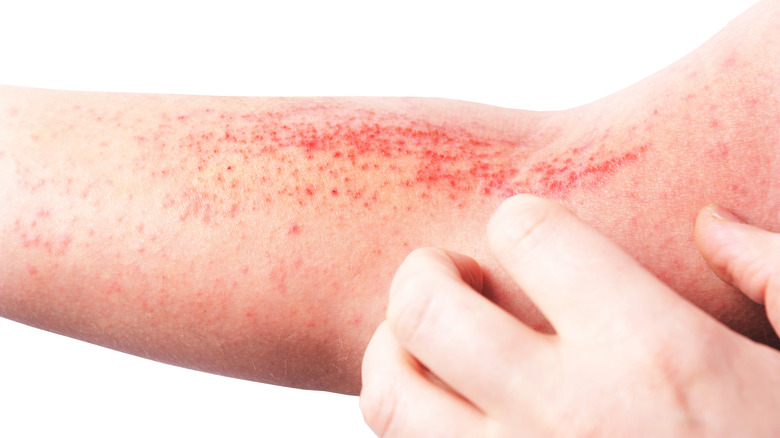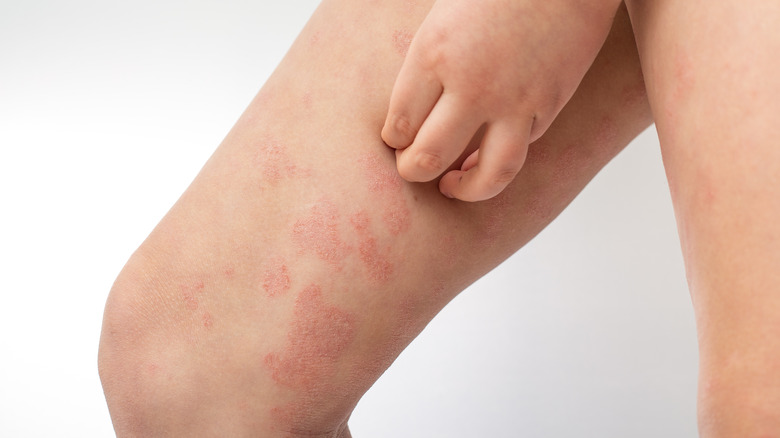New Research Yields A Game Changing Way To Treat Atopic Dermatitis
Atopic dermatitis (AD), or eczema, is a condition that results in red, itchy, aggravated skin. For most people, it is a chronic disease that starts in childhood. Atopic dermatitis can appear on the face, hands, neck, or in the bend of elbows or knees (via the National Institute of Arthritis and Musculoskeletal and Skin Diseases). Scratching the skin might result in oozing and swelling, making it more difficult to treat.
Doctors prescribe certain corticosteroid ointments and antibiotic creams to treat atopic dermatitis, and oral and injectable drugs are options for people with severe cases of the condition, per Mayo Clinic.
Until recently, doctors have not known what causes atopic dermatitis, but they know that inflammation plays a role in how the skin becomes dry and itchy. New research carried out by researchers from the University of Pennsylvania and the University of Tennessee may help experts figure out a way better way to treat it.
Researchers have discovered a likely trigger and treatment for atopic dermatitis
The findings, published in the journal Science Translational Medicine, came about purely by accident as the researchers were exploring inflammation in mice. During the tests, the mice developed a condition on their skin that resembled atopic dermatitis, "albeit the mouse-version," John Seykora, a professor of dermatology at the Perelman School of Medicine, told Penn Today.
Simply put, the research revealed that dysregulation of a particular type of skin cell, called fibroblasts, could be responsible for stimulating inflammation that is responsible for atopic dermatitis in mice and human cells. The researchers then used a monoclonal antibody treatment to try to reduce the inflammation, and it turned out to be effective. Seykora, a co-corresponding author of the study, said the team is looking to refine their studies in the future, which will help experts find treatment for the disease, according to Penn Today.


